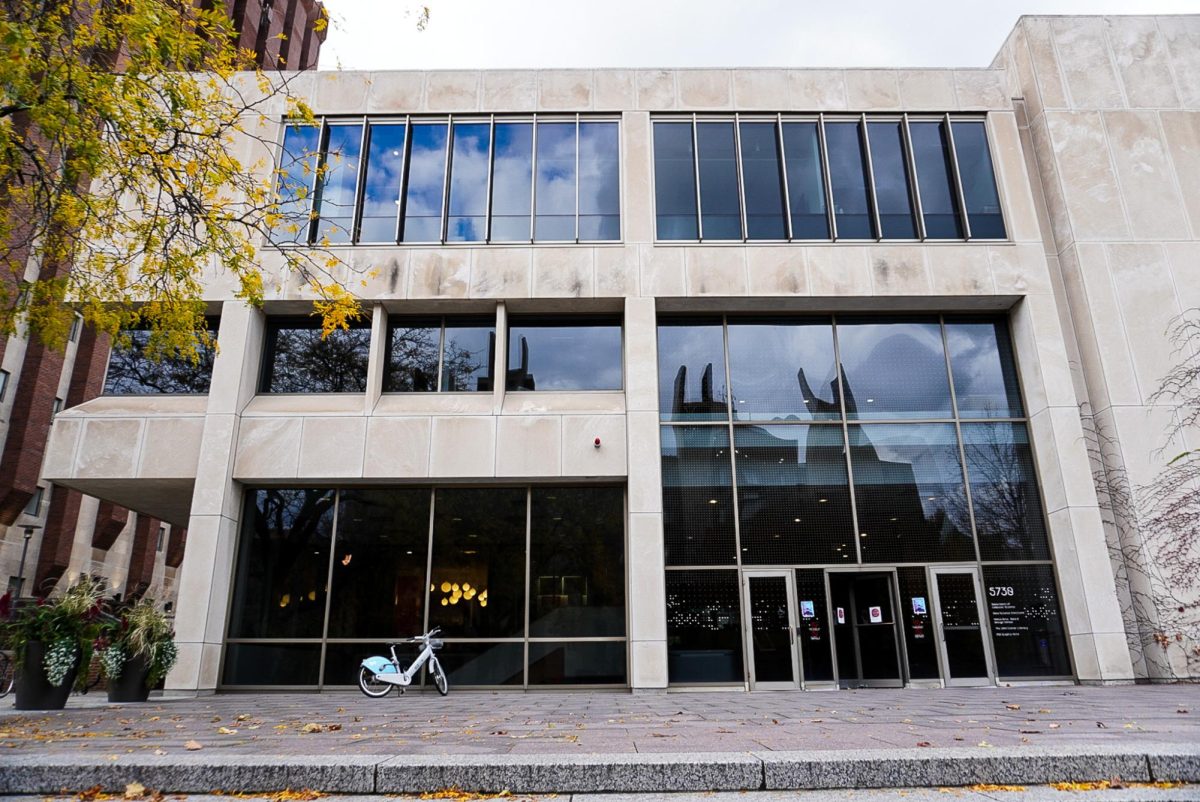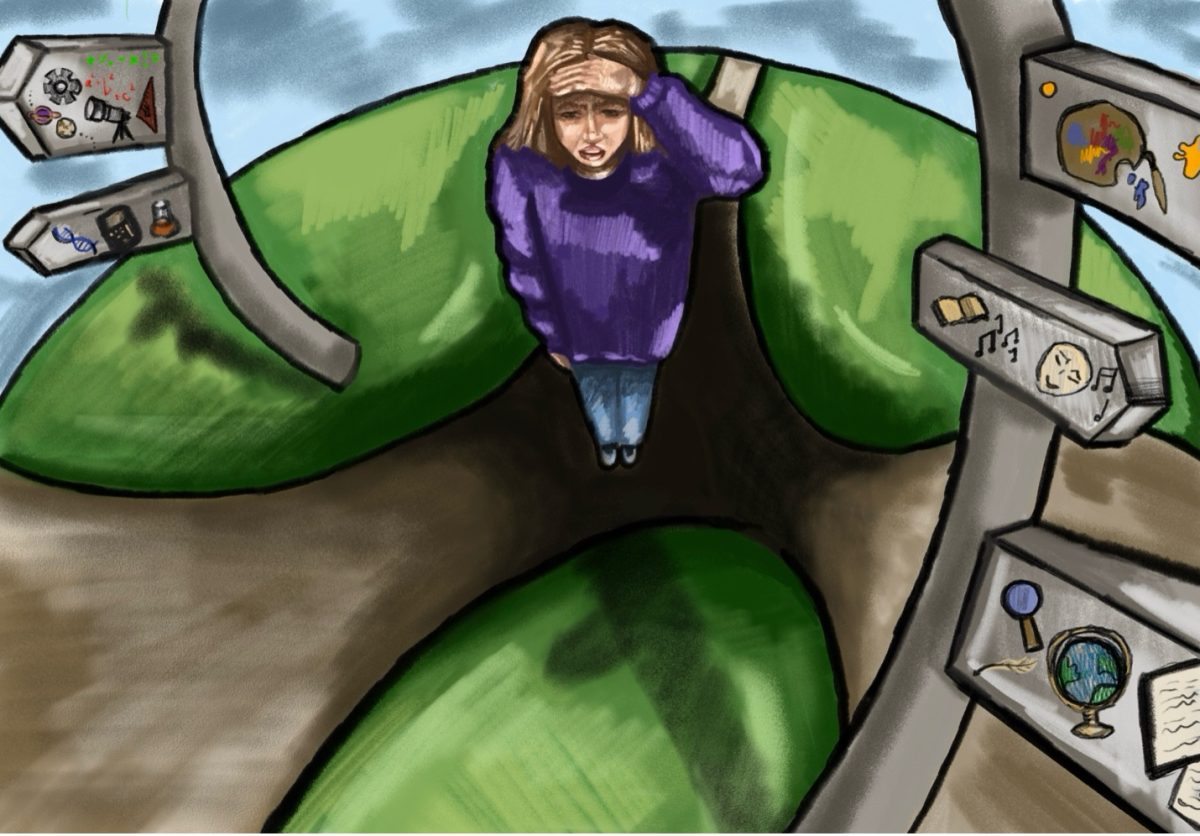The University of Chicago has a long tradition of valuing dissent, at least rhetorically. The 2014 Report of the Ad Hoc Committee on Protest and Dissent, for example, underscores that dissent and protest are crucial to the cultivation of two qualities essential to the mission of the university: a robust intellectual climate and the cultivation of members of our community as “citizens of a democracy.”
These are rousing principles. But it is not always easy to recognize our institution in them. It is often said that the university is not a democracy, and the relationship we bear to it—as students, faculty, staff, or community members—is not that of citizenship. I have heard this point presented many times as self-evident, as though it were sufficient to end an argument about university governance. But if a major purpose of our institution is to cultivate the habits of democratic citizenship, after all, then it would seem paradoxical that these habits cannot be applied to our own institution. If democracy and the critical thinking and deliberation that underpin it are only for away rather than home games, then members of the university community might reasonably conclude that the institution doesn’t believe in these values in the way it declares.
Why, indeed, is the university not a democracy? Why should we accept that we are not its citizens? The common justification, that the university is an aristocracy of knowledge, is insufficient in two ways. First, it’s perfectly possible, though not always easy, to combine democratic self-government with expert knowledge. This has been a major area of study and discussion in political theory and constitutional and administrative law for decades, even centuries, as well as an actual site of political experimentation: one thinks for example of the famous “Brain Trust” of the New Deal, a moment of high tide of democratic participation in American society, with a coterie of Ivy-educated lawyers and academics in the lead, building dozens of new federal agencies to represent the people’s will through social science–informed policy. Second, and more importantly, the university is not an aristocracy of knowledge. It’s an aristocracy of the more literal kind—one of wealth. Our Board of Trustees is notorious for lacking even a single member who has spent a career as an academic researcher or educator, despite its unusually large size.
This is not an idle academic matter. In fact, it is of the greatest urgency, not only for our university, but for all of higher education and perhaps American democracy itself. Academia is being remade rapidly from above. Many have been shocked by the demoralizing spectacle of Columbia University and soon no doubt many others capitulating to the extortion of the federal government to repress certain kinds of research, teaching, and, of course, protest.
Yet as university leaders in these cases have themselves acknowledged, external pressure is not the only cause of recently adopted repressive policies. There are elements within these institutions that have greeted the demands from the Trump administration as an opportunity to carry out changes they already wanted to make. Where is the Department of Education getting its list of demands for each institution? The answer, of course, is that it is coming from inside the house. At some of our peer institutions, trustees and administrators have decided, partly on their own account, to carry out an academic purge of unwanted ideas and their thinkers and advocates—a flagrant set of violations of academic as well as religious freedom and freedom of expression—and even apparently to participate in the deportation of their own students.
There is no compelling reason to believe this could not happen at the University of Chicago. Columbia, too, has embraced institutional neutrality and the Kalven Report, the same principled commitments that supposedly protect us. Why should any of us on campus have confidence in our Board of Trustees, a body that is accountable to us in exactly zero ways? Indeed, one of our own trustees, Antonio Gracias, is currently working for DOGE, one of the federal entities most aggressively targeting university research and teaching, with particularly devastating consequences in the sciences. And our institution is certainly unusually sensitive to financial pressure, given its structural deficit.
Not wishing to get caught in the contradiction between its stated principles and its economic vulnerabilities, the administration seems to have adopted the policy, “If we don’t move, they won’t see us.” Perhaps, but this cowering posture represents a failure to live up to the obligation imposed by the Kalven Report to actively defend the values of free inquiry. It implicitly asks all of us to self-censor to avoid the rougher treatment involved in being censored more coercively. And worst of all, it seems predicated on the fantasy that academic freedom could survive here while being extinguished all around us, as though we would not then live on a knife’s edge, obliging us into ever more cautious thoughts, words, and actions. Students here have already been arrested, pepper-sprayed, evicted from housing, and subjected to severe discipline for protest activity. It is not hard to imagine more serious repression arriving even without a formal ransom note from the government—sacrifices offered willingly and unprompted to propitiate the capricious White House.
It is comforting to imagine that the current onslaught can be ducked and evaded—that if we sacrifice some democracy internally, we will prove a less attractive target in an increasingly authoritarian national environment. But this is self-serving rationalization, and such evasion is fast becoming little more than a form of collaboration. The alternative—resistance—is, to repeat, not merely a nice idea but an actual obligation described in the University’s own policies. But UChicago need not carry out this obligation suicidally. Rather, it should attempt to help organize collective action across higher education: coordinated noncompliance by hundreds, even thousands of institutions. (An open letter of more than 100 law school deans denouncing the disintegration of the rule of law notably did not include Thomas Miles, dean of our law school.) UChicago should work with the national organizations of students and faculty also seeking to coordinate noncompliance. (It is not.) The failure to meet this obligation is a sign of how far the institution has drifted from its own stated values, itself a consequence of its undemocratic governance.
As if to illustrate this drift, President Paul Alivisatos told the Wall Street Journal last year about his experience growing up under the Greek military dictatorship and seeing the repressive effects of the junta in limiting expression and freedom of inquiry at Greek universities. “I don’t know if I shared with you this other aspect of it, which was right after the junta fell and democracy was restored, within about a year, it turned out that students started to periodically take over the university, and they shut it down sometimes for months on end. And that in my view was an awful thing where protest was disruptive in such a way that it prevented people from learning.” This story leaves out something crucial: the student uprising at Athens Polytechnic began not after the brutal military regime fell but while it still held power. In fact, the student movement played a decisive role in the freeing of the university from the repressive control described by Alivisatos and, indeed, in the establishment of modern Greek democracy itself—despite the deaths of dozens of students after tanks rolled onto campus on November 17, 1973. The regime fell the next year; November 17 became a national holiday. (Is it surprising that some campus turmoil followed this heroic, wrenching event? Would it have been better if the students had stayed quiet?) The lesson here, quite close to the spirit of the 2014 report, may be other than what the president appears to believe.
If we cannot have confidence in our official leadership, then we must turn to each other. Hopefully, we won’t have to face down tanks, but there’s little doubt that serious difficulties lie ahead. Fortunately, we don’t need permission to cultivate the habits and skills of democracy. In our own organizations of students, faculty, and staff, we can do it ourselves, starting now. There’s no time to waste.
Gabriel Winant is an Associate Professor of History and the College.
Editor’s Note: Defining and Defending Academics is a Viewpoints column written by members of the American Association of University Professors (AAUP) chapter at UChicago on University governance, campus politics, and the rights of academics and students. AAUP is a nonprofit organization of academic professionals dedicated to preserving academic freedom and standards of higher education nationwide.
Editor’s note, April 29, 2025: This article has been edited to reflect changes in Harvard’s response to the federal government.














zman / Apr 24, 2025 at 5:16 pm
I thought this article was going to outline the power structure at UChicago, but it turned out to be some kind of appeal for action. I was once a member of a college faculty. The faculty committee held a townhall meeting and issued a statement condemning President George W Bush’s invasion of Iraq. I uploaded that statement to whogivesacrap.webb. Why do people think universities are like independent nations?
Lisa Smith / Apr 22, 2025 at 6:27 pm
Thank you so much for this cogent discussion of the very clear moral challenge facing the University of Chicago at this time. As an alumna, I am waiting impatiently to see the University join the courageous resistance being waged by other educational institutions against government overreach and the danger to independent diversity of thought and thinkers that it represents. Either the principles espoused by the University have meaning or they have been hollow all of these years.